Climbing in psychotherapy
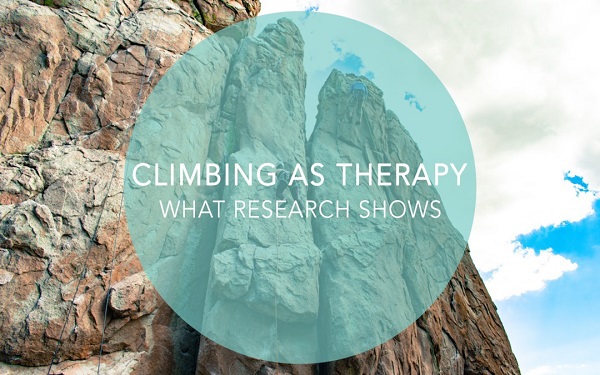
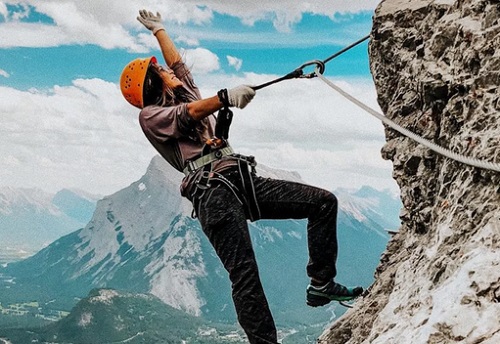
In recent years, the positive effects of climbing on people's mental health have been studied. Considering that most people are forced to work sitting in a chair within 4 walls, surely any form of exercise is considered beneficial and necessary. But climbing has to offer us much more than physical exercise. In a time where the human brain is inundated with information while also having to manage non-stop stressful situations throughout the day, climbing can provide us with peace of mind as well as the necessary mechanisms to cope with challenges.
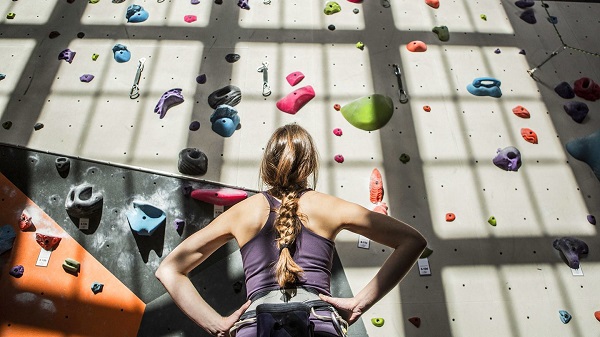
Studies have shown for years now that contact with nature has a beneficial effect on humans. Any form of exercise that takes place "outdoors" brings us into contact with our natural environment, fills us with pure oxygen, and feeds our brain with an abundance of stimuli and beautiful emotions. Being out in nature is where we really recharge our batteries. We clear our thinking, refresh our senses and redefine things and situations. So if we have the possibility to climb outside, it is good to seize the opportunity. Feeling the rock, the wind on our face, the smells and sounds of nature, all have a beneficial effect on our body. But even inside the gym, climbing has a lot to offer us.

Climbing stands out as one of the few sports that requires our absolute focus on the here and now. When you're climbing and hanging from the rock or the rope, your mind can't be anywhere else. You don't think about your job or your school, you don't think about your relationship, your parents or your children, your health issues, your financial situation or your loan. Your mind is completely focused on your body, your breathing and every little step you take. This level of concentration is a form of meditation that helps clear our heads of the countless cares and worries that chase and weigh us down every day. That's why after every climb, despite the physical fatigue, you feel refreshed and mentally rested.

What makes climbing even more special is that it confronts you with fear, and in order to function, you have to learn to control it. You learn to impose yourself and that small - or often big - voice inside you that tells you that you will not succeed, and sometimes in your daily life it paralyzes you. You learn to function in a stressful situation - because truth be told, hanging from a rope at 10 or 20 meters is quite a stressful situation - and come out victorious. After each climb you feel stronger, more capable, more confident.
All these characteristics of climbing have led several researchers to conclude that people suffering from increased stress, panic attacks, lack of self-confidence, depression, phobias or other chronic mental disorders can benefit greatly from climbing.
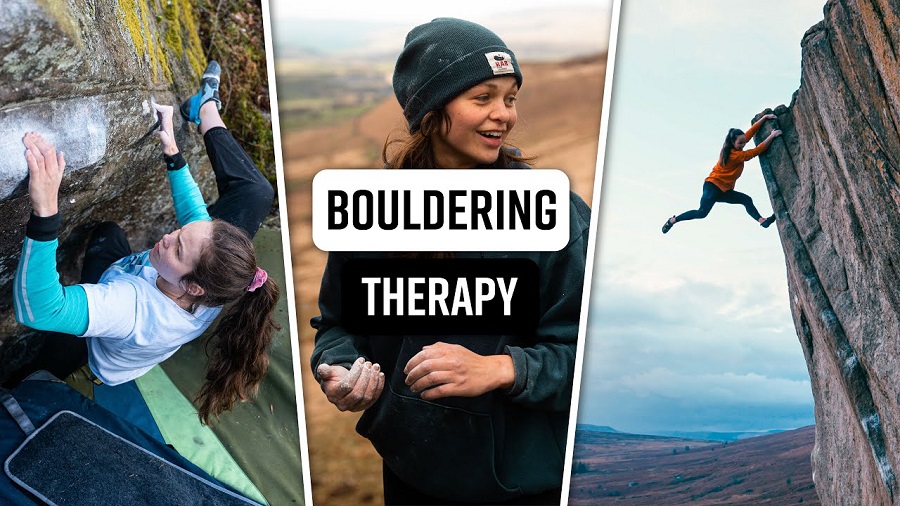
Climbing against depression
Miriam Pracki, a woman from Germany suffered from eating disorders since she was a teenager. In 2010, he had already been hospitalized 3 times while at the same time suffering from depression and self-harming tendencies. When she started climbing she began to notice positive changes in herself. She explains, “While you're climbing, the only important thing is now. You can't think about your body weight, your job or anything else.(…) Being strong in climbing made me stronger in general. I was able to carry that success and positivity into everyday life.”
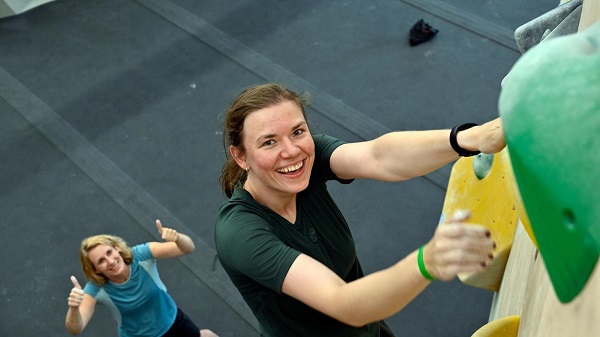
Climbing can bring about mindfulness, a focus on the moment that Pracki experienced, which is key to treating depression, explains Katharina Luttenberger, a psychology researcher at the University of Erlangen in Germany. She explains that the sport is also full of metaphors. "A depressed patient has to find his footing again in life, you have to climb to get out of your depression, you have to let go to move forward."
Luttenberger and her colleagues have developed a ten-session program based on nearly a decade of research. Each of the sessions begins with a meditation. The instructor then talks about the topic of the day, such as self-esteem, confidence or social relationships. The therapist then leads a climbing exercise that illustrates this theme. For example, patients may be blindfolded with the guidance of the trainer or other patients to explore fear, which usually disappears once they learn to rely on the guidance of others. The exercise is followed by a discussion and another meditation or relaxation exercise.
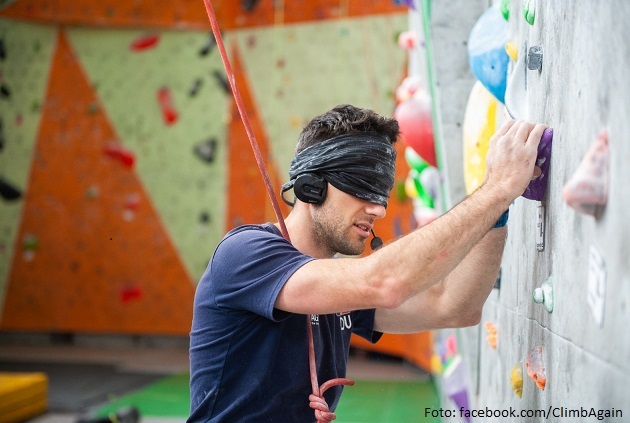
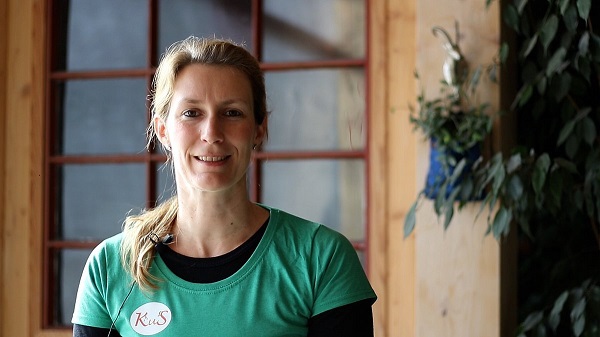
Photo: Katharina Luttenberger, psychologist
Alexis Konstantin Zajetz, an Austrian psychotherapist, has been exploring climbing as a therapy method since the early 2000s and founded the Institute for Climbing Therapy in Salzburg in 2005. A dedicated climber himself, he saw potential in the sport because of the intense concentration it requires and of the strong emotions it can evoke, and began incorporating bouldering sessions into his treatment with some patients. In one session, when Zajetz instructed one of his patients to choose an easy route to climb, she refused to climb below a moderate grade. "She demanded so much of herself," Zajetz says, because she was afraid of what others would think if she didn't climb a certain difficulty. After that, Zajetz says he was able to work with her on self-criticism, both in and out of the gym.
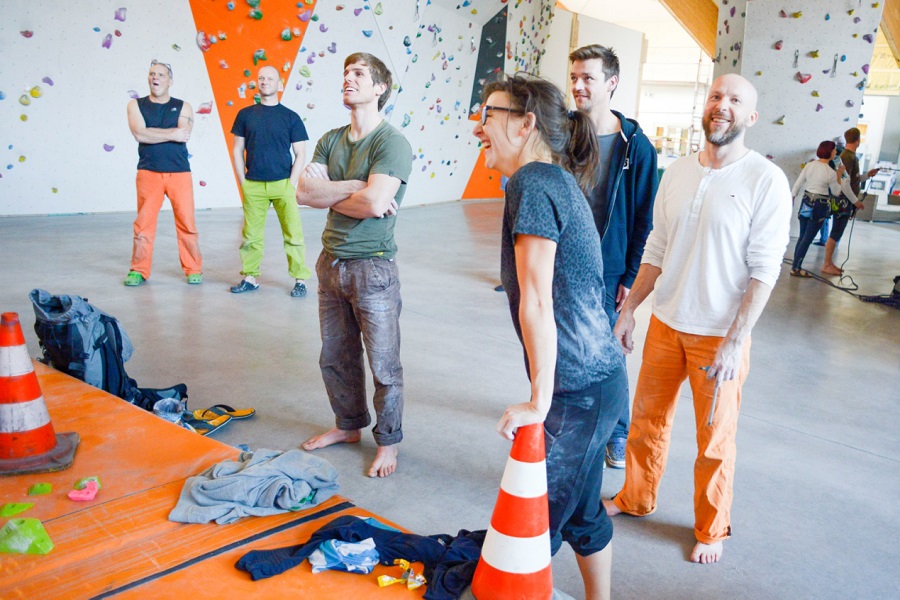
In January, the first conference on climbing as therapy was held in Germany, with around 200 participants. It included talks and workshops on mental conditions such as addiction, depression, anxiety and post-traumatic stress. Participating Pracki also spoke about the role of climbing in her recovery. "The participants were very happy to meet other people involved in climbing," says Alexis Konstantin Zajetz.
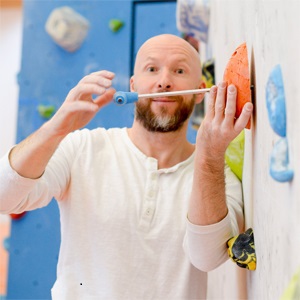
Photo: Alexis Konstantin Zajetz, psychotherapist
In Germany several clinics and hospitals have a climbing wall, so therapists can include bouldering problems in the therapeutic process. Bouldering is highly preferred as it is extremely economical, requires no equipment other than shoes, and does not deter people who have a problem with heights. It is also a very social/group process as due to the low height the rest of the group is always in contact with the climber to cheer him on and guide him.
Lisa Vigg, a psychologist and climbing coach, argues that the way a patient approaches a bouldering problem is similar to the way they approach problems in life. Today Vigg plans to deal exclusively with bouldering therapy. "It's worth it to get out of the treatment chair and be active with patients," she says. "I have worked with psychotherapy, both inpatient and outpatient, with groups and individuals, and I would say from experience that this is the easiest and happiest way of treatment for both patients and therapists."
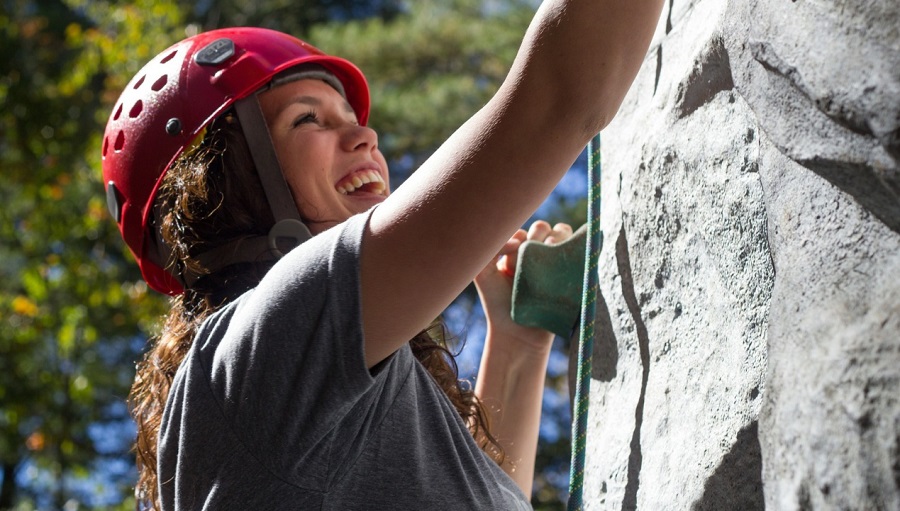
It is very gratifying that a single sport can offer a person so much. Good physical condition, peace of mind, love for nature and freedom, inner strength, concentration, persistence, patience, self-confidence, teamwork, trust in ourselves and others, and creativity.
For those of us who love this particular sport and have felt its beneficial properties on the mind and body, we recommend you give it a try without hesitation!
Sources
https://www.climbing.com/skills/climbing-as-a-form-of-therapy/
https://www.climbingtherapy.com/team-climbing-therapy/
https://www.sciencedirect.com/science/article/pii/S016517812030593X
Recent posts
-
24/05/2024Backpack Guide Part Α’ 10 – 30 L
-
20/03/2024Guide for crampons
-
19/02/2024Hangboarding for beginners
-
06/02/2024Rock Climbing in Occupational Therapy
-
23/11/2023Climbing Grades
-
22/11/2023Climbing in psychotherapy
-
16/11/2023What is Bouldering
-
15/11/2023Trad VS Sport Climbing
-
15/11/2023Winter Tents
-
07/11/20233 Season Tents
-
03/11/2023Summer Tents
-
02/11/2023Lifespan Of Your Climbing Gear – Part B Metal Components
-
02/11/2023Lifespan Of Your Climbing Gear – Part A (Harness, Rope, Slings and Webbing)
-
30/10/2023Nail Vernis Aquaglutene - Vade Retro
-
30/10/2023THE LOG BOOK
-
30/10/2023Mountain cookware
-
30/10/2023Our Blog
-
30/10/2023Climbing Shoes - Quick Buying Guide
-
30/10/2023Washing and maintenance of the sleeping bag
-
30/10/2023Superlight Tents
-
30/10/2023ΙNFORMATION FOR CRAMPONS
-
30/10/2023Ice axe
-
30/10/2023INFLATABLE MATTRESS SLEEP
-
30/10/2023Nikwax secrets of waterproofing
-
30/10/2023What Is “Softshell”?
-
30/10/2023Slacklining, ένας εναλλακτικός τρόπος γυμναστικής.
-
30/10/2023Mountaineering - Hiking Boots
-
30/10/2023Waterproof Membranes
-
30/10/2023Sleeping Bags
-
30/10/2023Sleeping Mats
-
30/10/2023Base Layers
-
30/10/2023Climbing Helmets















































































































































































